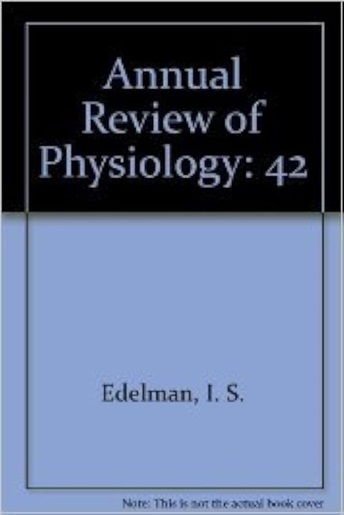为什么肺保持时间:昼夜节律和肺免疫。
IF 15.7
1区 医学
Q1 PHYSIOLOGY
引用次数: 33
摘要
昼夜节律是自然界中普遍存在的生物功能的日常循环。昼夜节律被理解为生物体预测日常环境变化的一种手段,对于协调复杂的生物过程(如免疫)也很重要。这一点在呼吸系统中表现得最为明显,自古以来,人们就认识到了炎症性肺病的昼夜节律。在这篇重点综述中,我们研究了如何将昼夜节律的新兴研究应用于基础肺生物学和呼吸系统疾病的研究。我们首先对昼夜节律和支撑昼夜节律的分子生物钟进行一般介绍。然后,我们将重点放在将生物钟功能与呼吸系统内的免疫活动联系起来的新数据上。最后,我们考虑了关于肺中生物计时的突出问题,以及如何更好地掌握时间生物学可以告知我们对复杂肺部疾病的理解。《生理学年度评论》第82卷的最终在线出版日期预计为2020年2月10日。修订后的估计数请参阅http://www.annualreviews.org/page/journal/pubdates。本文章由计算机程序翻译,如有差异,请以英文原文为准。
Why Lungs Keep Time: Circadian Rhythms and Lung Immunity.
Circadian rhythms are daily cycles in biological function that are ubiquitous in nature. Understood as a means for organisms to anticipate daily environmental changes, circadian rhythms are also important for orchestrating complex biological processes such as immunity. Nowhere is this more evident than in the respiratory system, where circadian rhythms in inflammatory lung disease have been appreciated since ancient times. In this focused review we examine how emerging research on circadian rhythms is being applied to the study of fundamental lung biology and respiratory disease. We begin with a general introduction to circadian rhythms and the molecular circadian clock that underpins them. We then focus on emerging data tying circadian clock function to immunologic activities within the respiratory system. We conclude by considering outstanding questions about biological timing in the lung and how a better command of chronobiology could inform our understanding of complex lung diseases. Expected final online publication date for the Annual Review of Physiology, Volume 82 is February 10, 2020. Please see http://www.annualreviews.org/page/journal/pubdates for revised estimates.
求助全文
通过发布文献求助,成功后即可免费获取论文全文。
去求助
来源期刊

Annual review of physiology
医学-生理学
CiteScore
35.60
自引率
0.00%
发文量
41
期刊介绍:
Since 1939, the Annual Review of Physiology has been highlighting significant developments in animal physiology. The journal covers diverse areas, including cardiovascular physiology, cell physiology, ecological, evolutionary, and comparative physiology, endocrinology, gastrointestinal physiology, neurophysiology, renal and electrolyte physiology, respiratory physiology, and special topics.
 求助内容:
求助内容: 应助结果提醒方式:
应助结果提醒方式:


